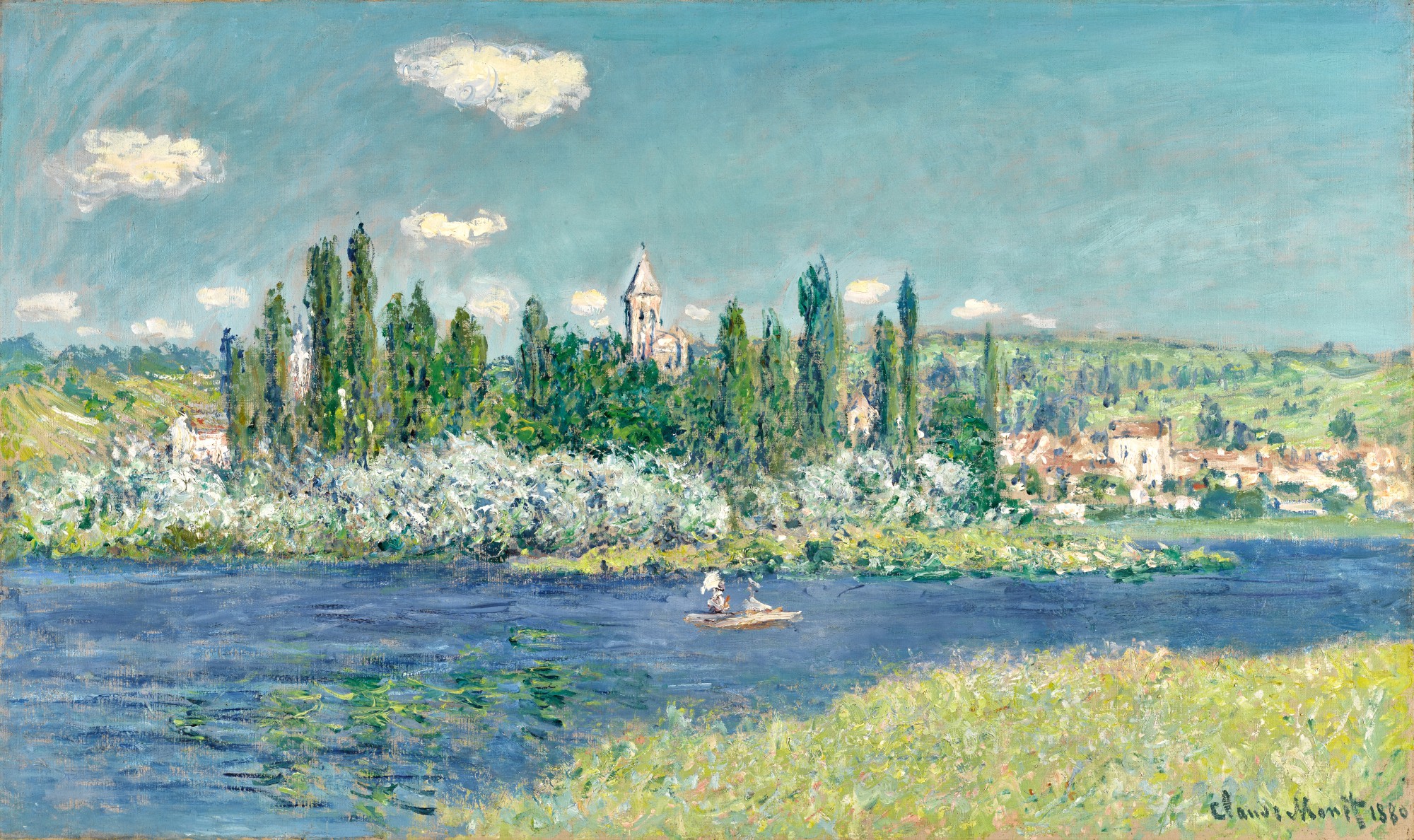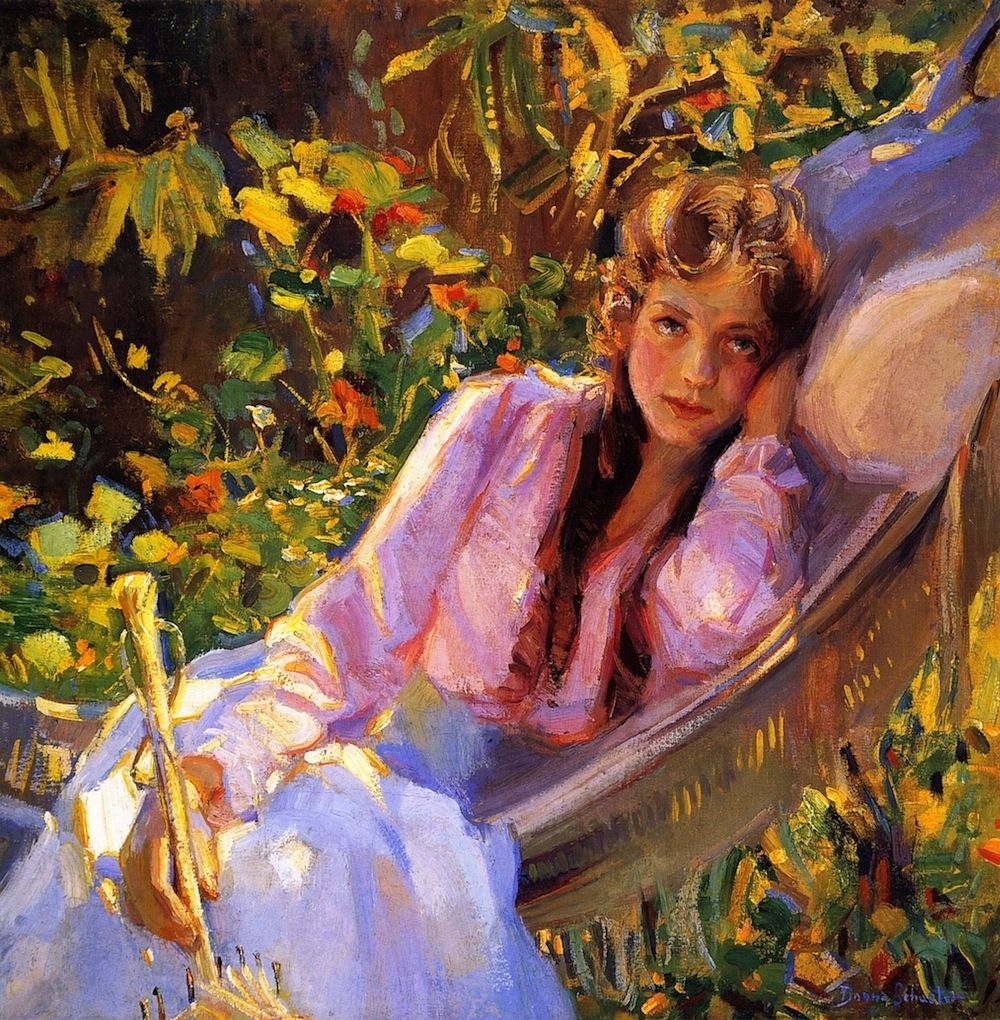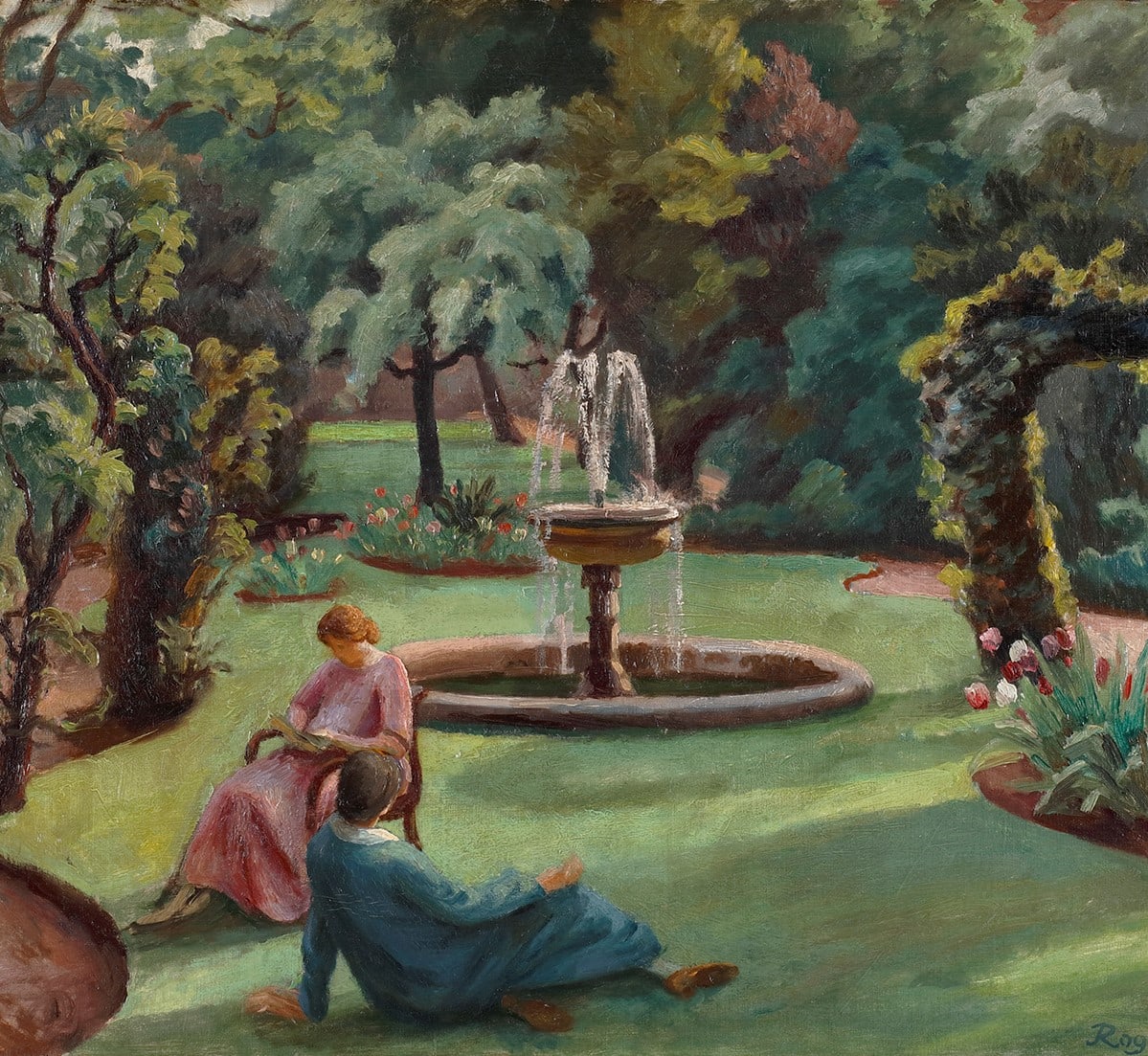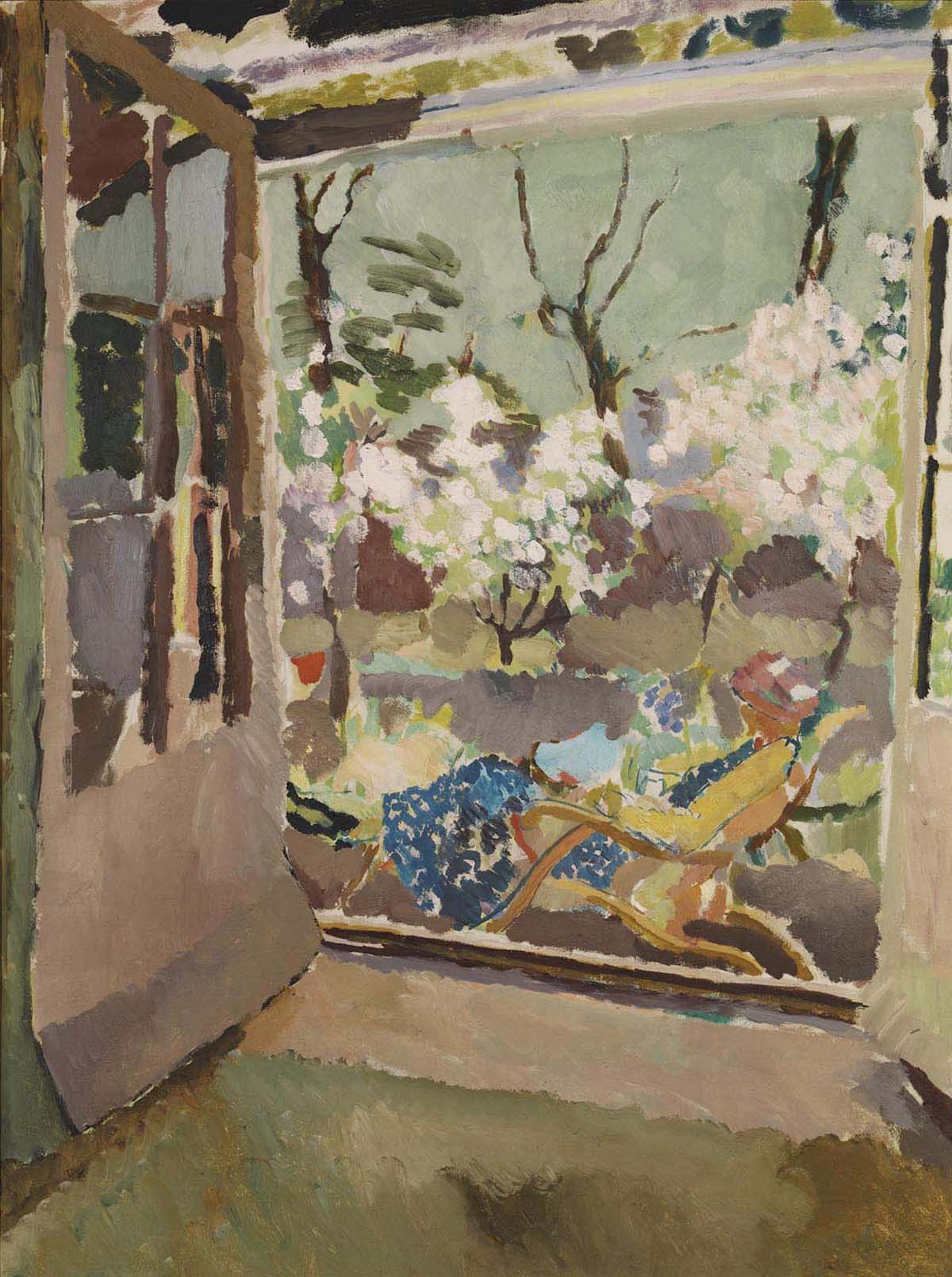"I have painted the Seine throughout my life, at every hour, at every season...
I have never tired of it: for me the Seine is always new" - Claude Monet
Claude Monet | Vétheuil, 1880 | Sotheby's
The present work depicts Vétheuil, the small village situated sixty kilometres north of Paris on the riverbanks of the Seine, where the artist lived with his wife and children from 1878 until 1881.
Unlike Monet’s previous home of Argenteuil, Vétheuil was further along the Seine and thus slightly out of reach for Parisians escaping the city on a weekend.
As a result, both the village and surrounding countryside had remained largely untouched and the remote setting became the ideal vehicle for Monet’s increasing interest in painting nature en plein air.

.jpg)
.jpg)













